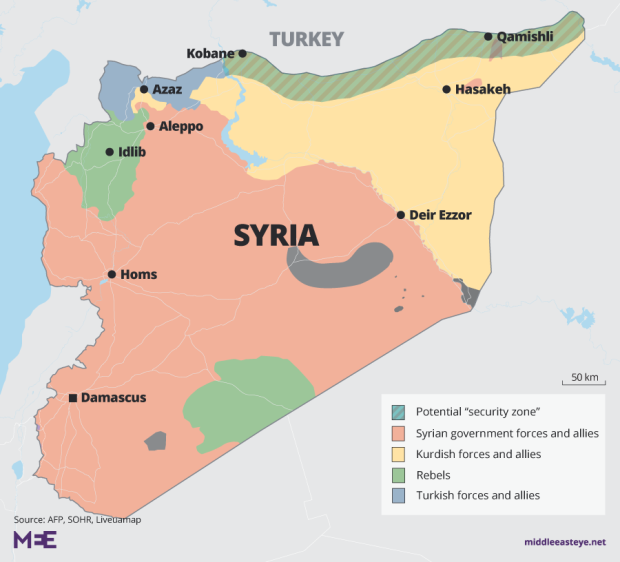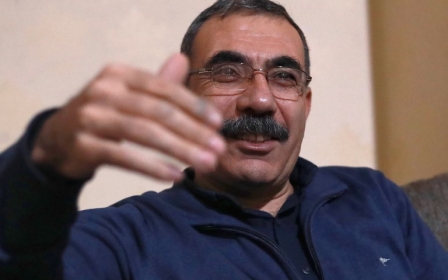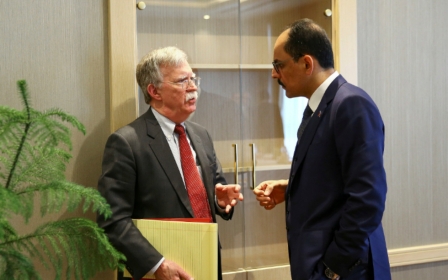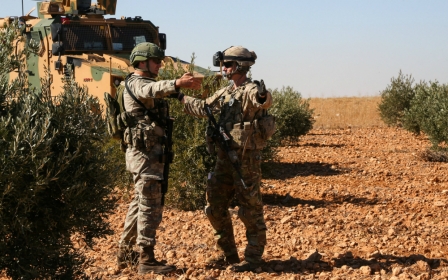US-backed SDF says it will help set up north Syria safe zone
The US-backed Syrian Democratic Forces have said they are ready to help create a safe zone suggested by US President Donald Trump in its region across north and east Syria, a day after Syria's Kurds rejected such an area under Turkish control.
The SDF, led by the Kurdish People's Protection Units (YPG), said on Wednesday that such a zone must have "international guarantees... that would prevent foreign intervention," in an apparent reference to neighbouring Turkey.
The SDF statement said it hoped to ensure stability at the border region by reaching agreements with Turkey, which has vowed to crush the YPG, the Reuters new agency reported.
Trump, who announced he was pulling US troops out of Syria last month, suggested in a tweet on Sunday creating a safe zone without elaborating.
The SDF fears the US move to withdraw will give Turkey, who consider the YPG as terrorists, the opportunity to mount a new assault.
Turkish President Recep Tayyip Erdogan said on Tuesday that he had a "quite positive" telephone conversation with Trump late on Monday where he reaffirmed that "a 20-mile [30km] security zone along the Syrian border... will be set up by us."
However, Aldar Khalil, a senior Kurdish political leader, rejected the idea of a safe zone under Turkish control.
Khalil said on Tuesday that the Kurds would accept the deployment of UN forces along the separation line between Kurdish fighters and Turkish troops to ward off the threatened offensive.
"Other choices are unacceptable as they infringe on the sovereignty of Syria and the sovereignty of our autonomous region," Khalil said.
Damascus also denounced Erdogan's "language of occupation" in talking about a safe zone.
"The statements made today by the Turkish president reaffirm that this regime... does not deal [with anyone] except in the language of occupation and aggression," state news agency SANA quoted a source at the Syrian foreign ministry as saying.
US support for the YPG during the Syria conflict has been a major source of friction between Ankara and Washington, with the US regarding the YPG as an effective ground force in the fight against Islamic State.
More than 2,000 leave IS holdout
Meanwhile, more than 2,000 people, including nearly 200 IS fighters, have left the group's final holdout in eastern Syria in the past 24 hours, a UK-based activist group said on Wednesday.
The SDF are waging a final assault on the area east of the Euphrates river and have provided buses to evacuate civilians and fighters trapped inside.
"In total, 2,200 people have left in the last 24 hours, including 180 IS fighters," the Syrian Observatory for Human Rights said.
It said around 1,100 people, "mostly women and children as well as 80 IS members" had left in a convoy around noon on Wednesday.
Travelling in private cars and buses provided by the SDF, they were headed for camps run by the Kurdish-dominated force, Observatory head Rami Abdel Rahman said.
The SDF, backed by air strikes from a US-led coalition, in September launched an offensive to oust IS from the rump of the once-sprawling "caliphate" it proclaimed in 2014.
Abdel Rahman said over 20,000 people have fled the area since the start of December, including Syria, Iraqi, Russian and Somali fighters.
The UN said on Friday that overall some 25,000 people have fled the violence over the last six months.
Outflow of refugees accelerating
Abdel Rahman said the outflow of evacuees had accelerated in recent days, with some 5,300 people, including 500 IS fighters, leaving since Friday, when the SDF-run evacuations started.
Thousands of people had already fled on foot before that.
The SDF has captured multiple districts in recent weeks, but IS still controls the village of Sousa, where the SDF has been preparing for a final assault.
US-led strikes against IS's final positions intensified on Wednesday.
That came after a suicide attack killed four US personnel in the northern town of Manbij, costing Washington its worst combat losses in the war-torn country since 2014 as it prepares to withdraw.
Sparked by the brutal repression of protests against President Bashar al-Assad in 2011, Syria's conflict has killed more than 360,000 people and displaced millions at home and abroad.
New MEE newsletter: Jerusalem Dispatch
Sign up to get the latest insights and analysis on Israel-Palestine, alongside Turkey Unpacked and other MEE newsletters
Middle East Eye delivers independent and unrivalled coverage and analysis of the Middle East, North Africa and beyond. To learn more about republishing this content and the associated fees, please fill out this form. More about MEE can be found here.





